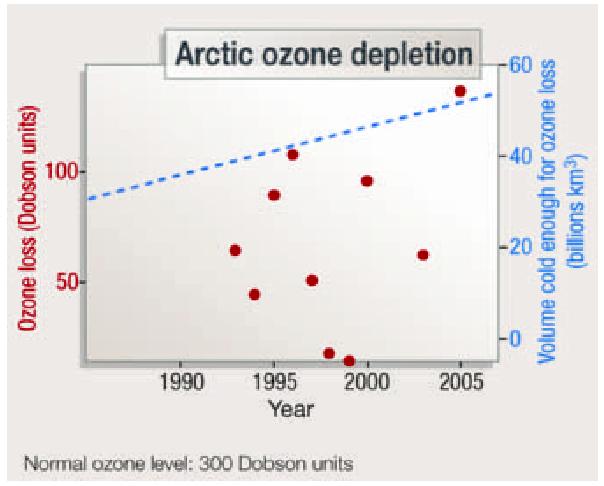
You read it here first!

Update (09/05/05): Markus Rex was kind enough to send us the full figure from which Nature made their thumbnail, and which is a little clearer. He also cautions that the 2005 numbers are still preliminary, however there is a clear trend towards increasing potential for Arctic ozone loss, which is realised or not depending on the vagaries of each individual winter.
